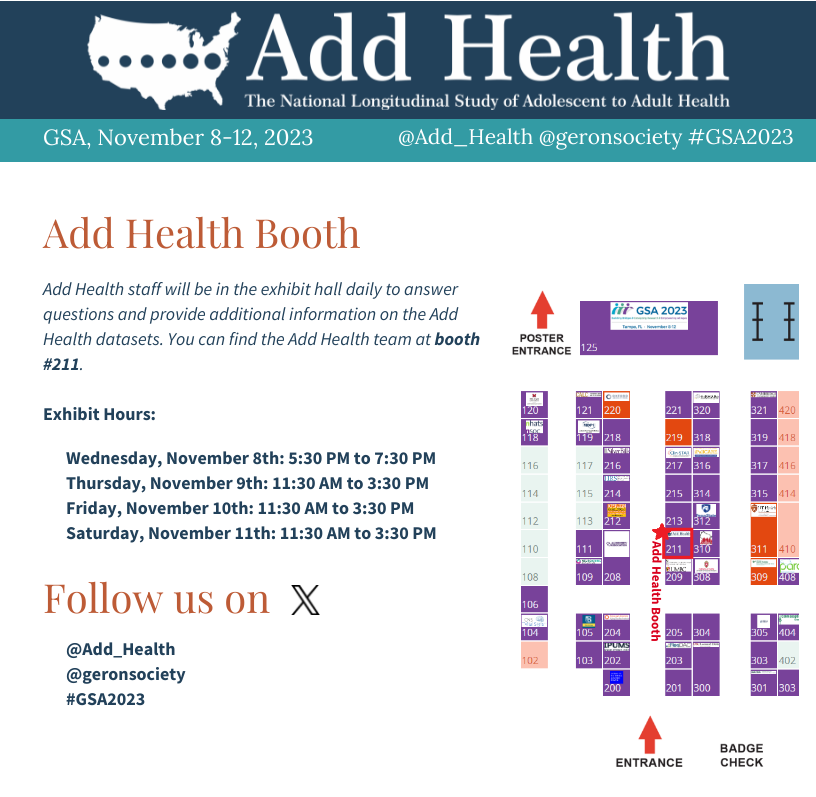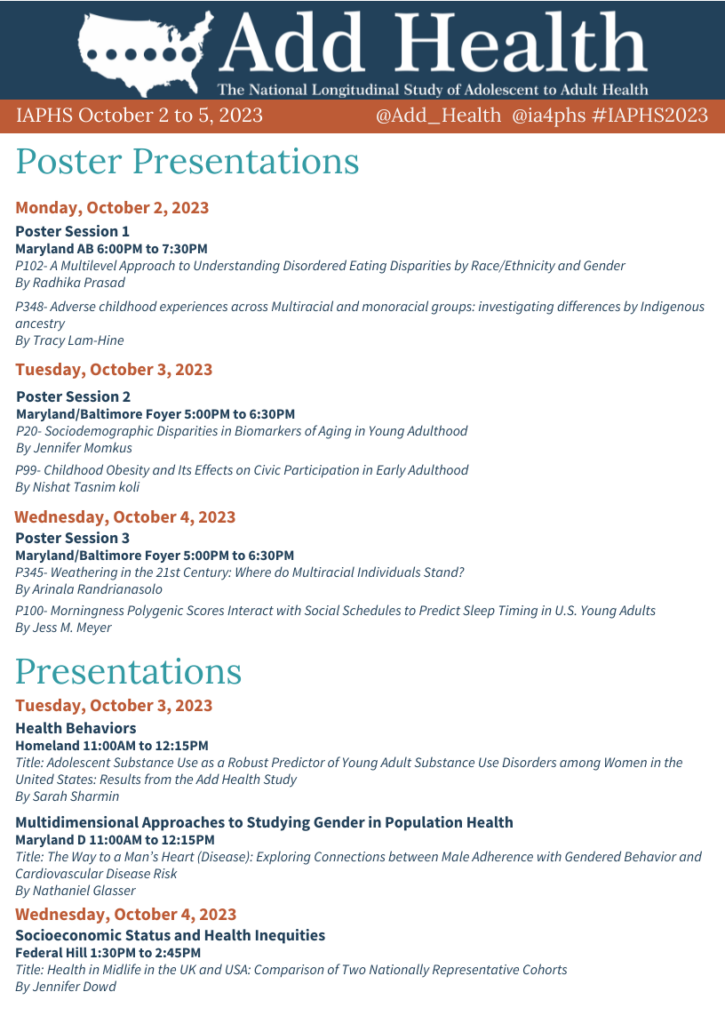The following data are now available to Add Health contract researchers.
All Coded Causes of Death File, Including Entity-Axis Codes, 2021
This file contains all underlying cause of death and entity-axis codes appearing in the National Death Index (NDI) source file through 2021. Functioning as dummy variables, zero represents the absence of a code on the decedent’s death certificate, while one denotes the presence of one. N=647
All Coded Causes of Death File, Including Record-Axis Codes, 2021
This file contains all underlying cause of death and record-axis codes appearing in the National Death Index (NDI) source file through 2021. Functioning as dummy variables, zero represents the absence of a code on the decedent’s death certificate, while one denotes the presence of one. N=647
Individual Vital Status and Underlying Cause of Death File, 2021
This file contains one record for each of the 20,745 Add Health sample members from Wave I. It provides the vital status of each sample member through 2021 as well as the National Death Index-provided underlying cause of death code in ICD-10 format for each decedent. The month and year of the most recent Add Health interview are provided for living sample members, while the month and year of death are provided for decedents. N=20,745
Ordered Cause of Death File, 2021
This file contains entity- and record-axis codes reported by the National Death Index (NDI) for each decedent in the Add Health sample through 2021. The file is arranged hierarchically, by axis code; therefore, each decedent may have multiple records depending on the maximum number of entity- and record-axis codes recorded by NDI. The sequence of the decedent’s records reflects the order in which the entity- and record-axis codes were reported in the NDI record. N=2,123
Current Add Health investigators can log in to the CPC Data Portal and use the “Request More Data” button to order this dataset.
For more information on the CPC Data Portal, please visit the Frequently Asked Questions page.












